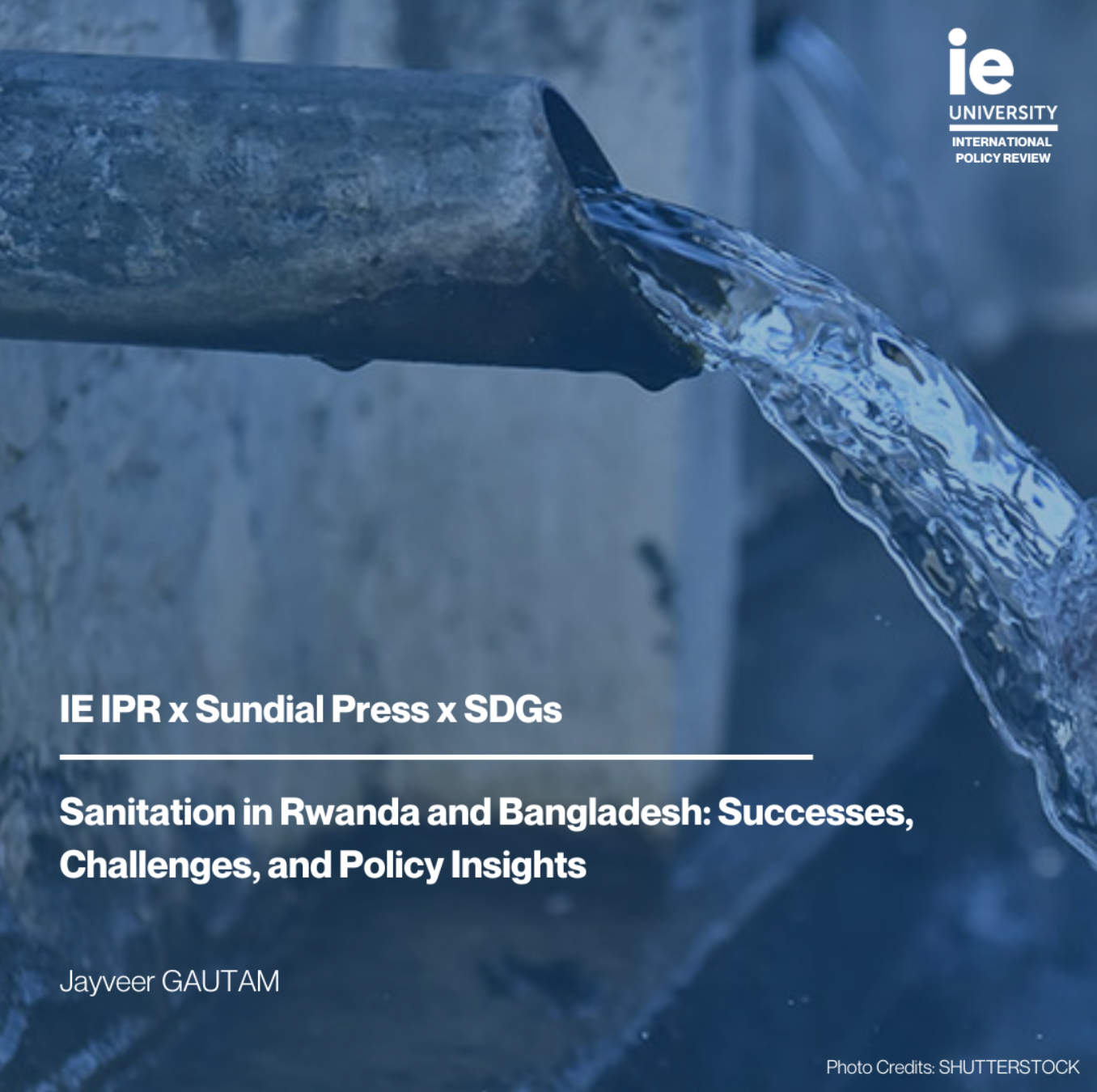
30 Jun Sanitation in Rwanda and Bangladesh: Successes, Challenges, and Policy Insights
Jayveer Gautam
School of Politics, Economics & Global Affairs, IE University Madrid, Spain.
Bachelor’s in International Relations.
E-mail: jgautam.ieu2024@student.ie.edu.
Abstract
An important aspect of the sixth sustainable development goal (“ensure availability and sustainable management of water and sanitation for all”) is the steps that governments take to improve the quality of life for its citizens. To this extent many strategies fail due to a multitude of factors, ranging from a lack of motivation to implement policies to a
lack of funding and personnel. However, recent successes in Bangladesh (84% of whose population has access to sanitation) and Rwanda (72% has access to sanitation services) provide hope for many developing countries and inform researchers about what works and what doesn’t. Henceforth, this article aims to analyse the successes and failures of the Bangladeshi and Rwandan sanitation programmes. Through a thorough examination of the tools used, scope involved, and actors present, we can weigh their successes and failures, both of which are important lessons for the ultimate goal of this paper, a comprehensive model that can be used by similar developing countries to improve their respective levels of sanitation. All of this in the effort of making an effective exercise in creating universal protocols that bridge the gap between the challenges individuals face towards self actualization and their ability to fulfill their capabilities.
READ THE FULL ARTICLE HERE

Sorry, the comment form is closed at this time.